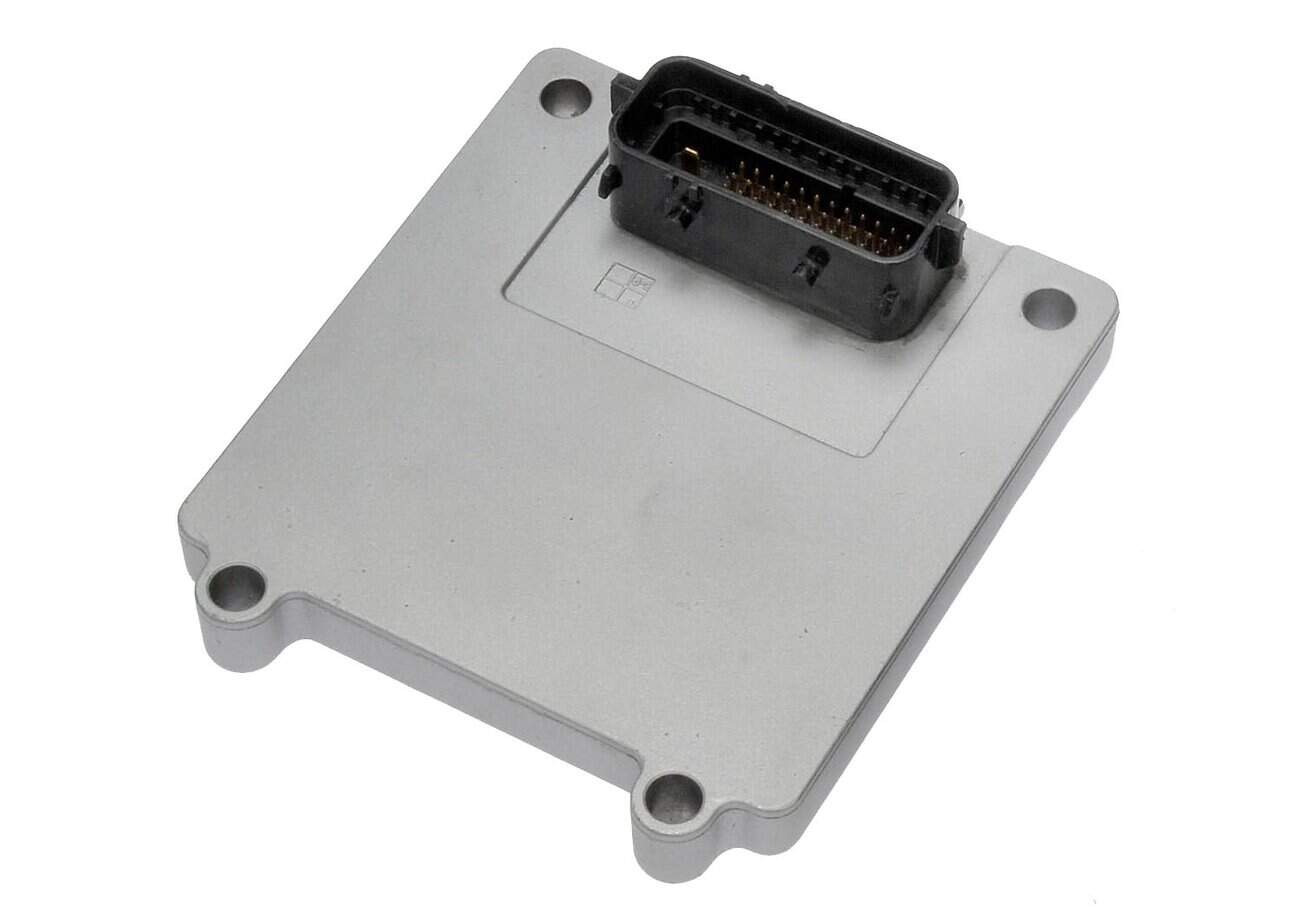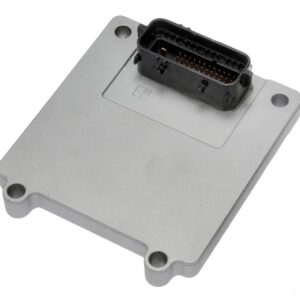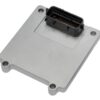If your 2006-2014 GMC Savana 3500 work van is sidelined with shifting problems, you’re not just inconvenienced—you’re losing money. Hard shifts, getting stuck in gear, or a persistent Check Engine light are more than just annoyances; they’re signs that the brain of your transmission, the Transmission Control Module (TCM), has likely failed. In my 20+ years of diagnostics, I’ve seen countless work vehicles like the Savana develop these exact issues, often due to heat and vibration causing internal electronic failure.
This T42 Transmission Control Module, corresponding to part number 24235732, is the definitive, reliable solution. The most critical feature? It arrives at your door fully programmed to your van’s specific Vehicle Identification Number (VIN). This eliminates the need for expensive dealership programming, turning a potentially complex, multi-day repair into a straightforward, plug-and-play job you can complete in your own garage or bay. Get your workhorse back on the job, fast.
Is Your Savana Van Showing These Telltale Signs?
- ✔ Unpredictable or harsh gear changes that slam into gear.
- ✔ The vehicle feels stuck in one gear (often called “limp mode”).
- ✔ Your scanner is pulling transmission-related Diagnostic Trouble Codes (DTCs) like P0700, P0750, P0753, or other solenoid-specific faults.
- ✔ Delayed engagement when shifting from Park to Drive or Reverse.
- ✔ A noticeable drop in fuel efficiency or a transmission that seems to be running hot.
- ✔ The transmission warning light or Check Engine Light is illuminated on your dash.
Case Study: The “Phantom” Shifting Problem
A fleet manager brought in a 2011 Savana 3500 with a complaint that stumped his regular mechanic. The van would occasionally refuse to shift out of 2nd gear, but only after it had been running for over an hour on hot days. There were no consistent codes, just a general P0700 (Transmission Control System Malfunction) that would pop up intermittently. After checking the wiring and fluid, I suspected a heat-soaked TCM. We swapped in one of our VIN-programmed T42 modules. The fix was immediate. The van was back in service the same afternoon, and the phantom shifting issue never returned. It’s a classic example of how thermal stress can cause these modules to fail unpredictably.
Get Your Work Van Back on the Road: A Quick Installation Guide
- ✔ Safety First: Always disconnect the negative terminal from your vehicle’s battery before starting any electronic component replacement.
- ✔ Locate the Module: On the GMC Savana and Express vans, the TCM is typically found in the engine compartment on the right-hand (passenger) side. Consult your specific model’s service information if you’re unsure.
- ✔ Disconnect and Remove: Carefully unplug the electrical connectors. Press the release tabs firmly to avoid damaging the clips. Then, unbolt the old module from its mounting bracket.
- ✔ Install the New Module: Bolt the new, VIN-programmed TCM into place. Reconnect the electrical harnesses, ensuring they click securely into place.
- ✔ Final Steps: Reconnect the battery terminal. While our programming handles the critical software, it’s good practice to use a basic scan tool to clear any stored fault codes from the vehicle’s memory. Start the engine and test drive to confirm smooth shifting.
Verified Vehicle Compatibility
This module is engineered for a precise fit and function in a wide range of General Motors vehicles equipped with 4-speed automatic transmissions like the 4L60E, 4L65E, and 4L80E. While this page focuses on the 2006-2014 Savana 3500 Transmission Module, it is also a direct replacement for the following models. Please verify the location noted for your specific vehicle.
- ALLURE 06-09 (lower air cleaner housing)
- AVALANCHE 1500 07-08 (next to battery)
- CANYON 08-12 (RH rear engine compartment)
- COBALT 06-10 (LH strut tower)
- COLORADO 08-12 (RH rear engine compartment)
- DTS 06-11 (RH front engine compartment)
- ENVOY 06-07 (8 cylinder, LH engine compartment)
- ENVOY 08-09 (LH engine compartment)
- EXPRESS 1500/2500/3500 VAN 06-14 (RH engine compartment)
- G5 07-10 (LH strut tower)
- G6 06-10 (LH strut tower)
- GRAND PRIX 06-08 (lower air cleaner housing)
- HHR 06-11 (LH engine compartment)
- HUMMER H3 08-10 (RH rear engine compartment)
- IMPALA 06-11 (lower air cleaner housing)
- ION 06-07 (behind LH strut tower)
- LACROSSE 06-09 (lower air cleaner housing)
- LUCERNE 06-11 (LH engine compartment)
- MALIBU 06-10 (LH frame rail)
- MONTE CARLO 06-07 (lower air cleaner housing)
- MONTANA 06-09 (LH strut tower)
- RAINIER 06-07
- SAAB 9-7X 06-09 (LH engine compartment)
- SAVANA 1500/2500/3500 VAN 06-14 (RH engine compartment)
- SIERRA 1500/2500 PICKUP 07-13 (next to battery, check options)
- SILVERADO 1500/2500 PICKUP 07-13 (next to battery, check options)
- SSR 05-06 (front LH frame)
- SUBURBAN 1500 07-08 (next to battery)
- TAHOE 07-09 (next to battery, check options)
- TRAILBLAZER 06-09 (8 cylinder or all engines 08-09, LH engine compartment)
- UPLANDER 06-09 (LH strut tower)
- VUE 07-10 (2.4L, check options)
- YUKON & YUKON XL 1500 07-09 (next to battery, check options)
It means we load your vehicle’s specific VIN into the module before we ship it. This ensures the TCM has the correct software and calibration files for your van’s exact configuration (engine, transmission, axle ratio). This makes the installation plug-and-play, saving you a trip to the dealer and avoiding hundreds in programming fees.
Not at all. For most vehicles, including the Savana van, this is one of the easier electronic modules to replace. It’s located in the engine bay, requires only basic hand tools, and typically takes less than 30 minutes. The pre-programming eliminates the most difficult part of the job.
A P0700 code is a general fault code indicating the TCM has detected a problem and requested the Check Engine Light be turned on. While a faulty TCM itself can cause a P0700, it’s often accompanied by more specific codes (like for solenoids or sensors). If your diagnosis has confirmed the TCM is the root cause, then yes, replacing it will resolve the P0700 and the underlying issue.
No. We do not require a core return for this part. You can keep, recycle, or dispose of your old module without any hassle or additional charges.


